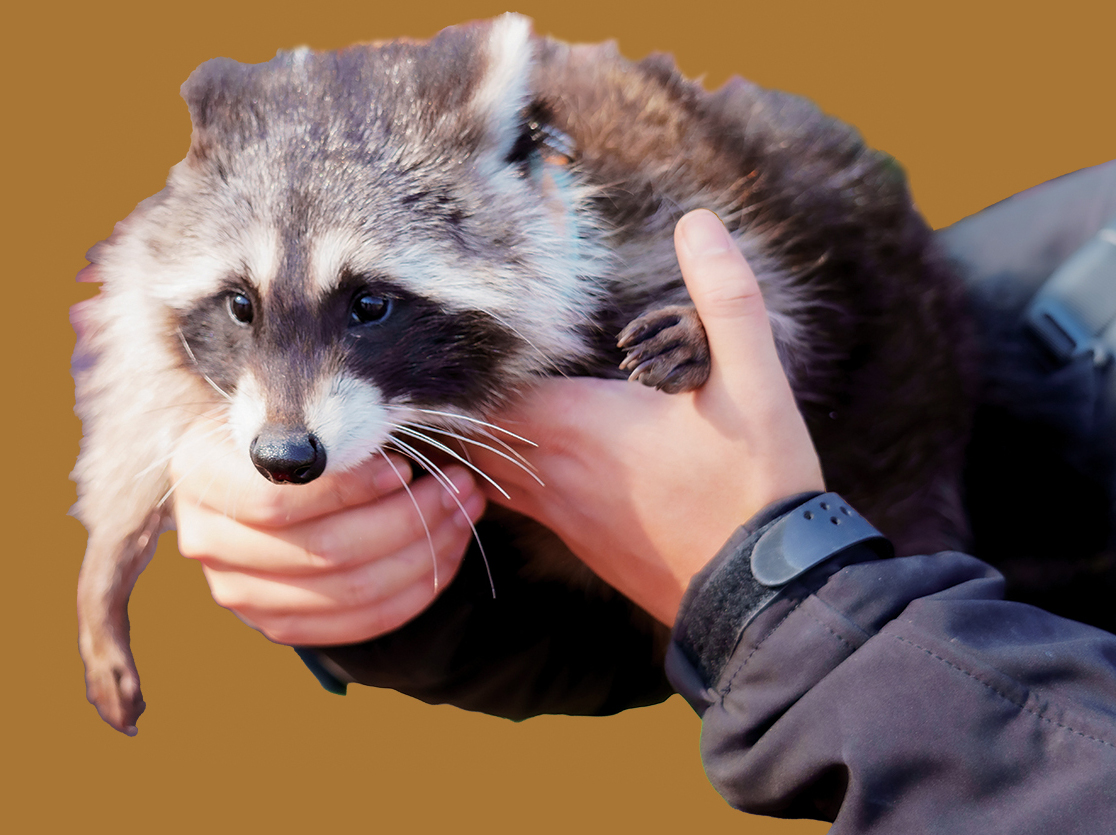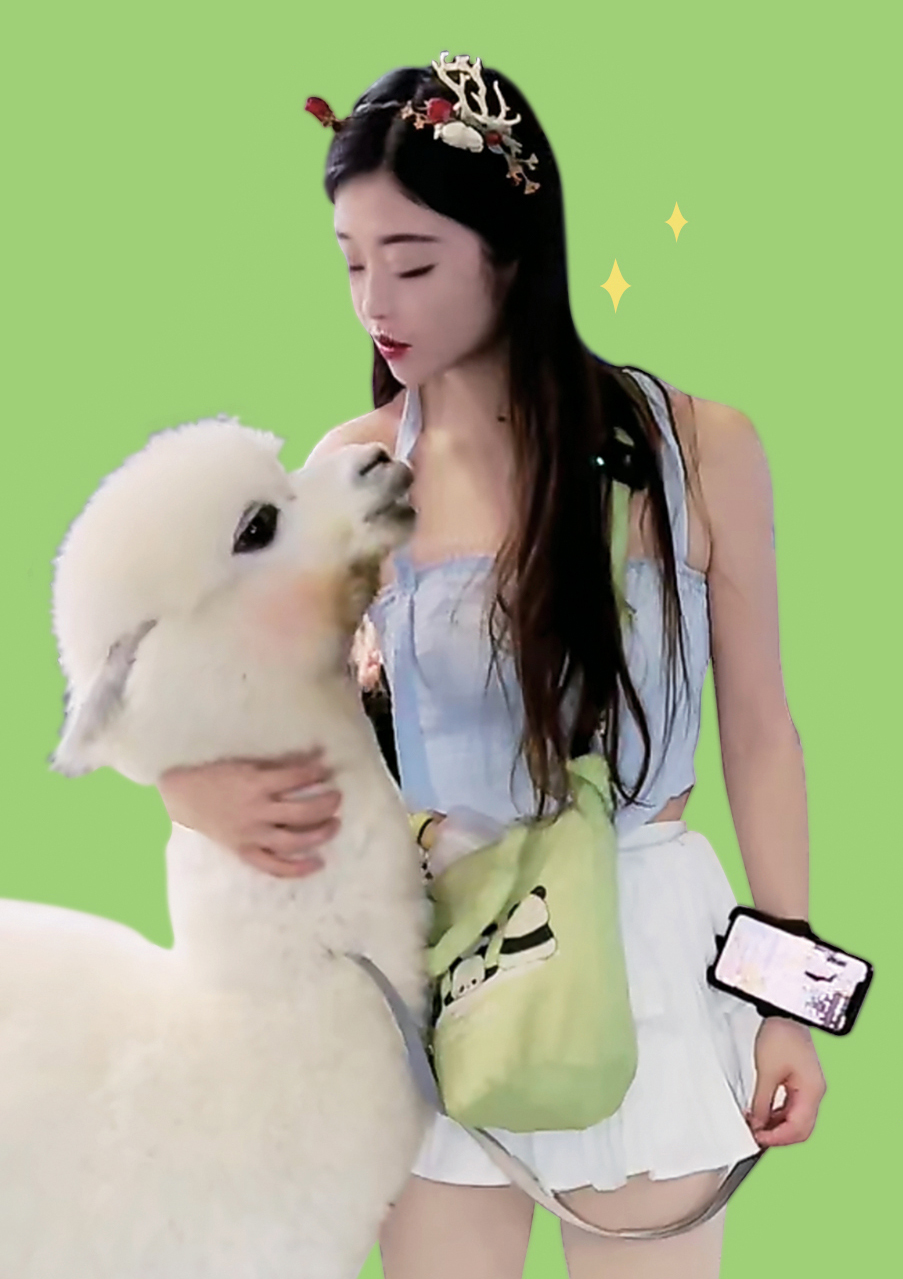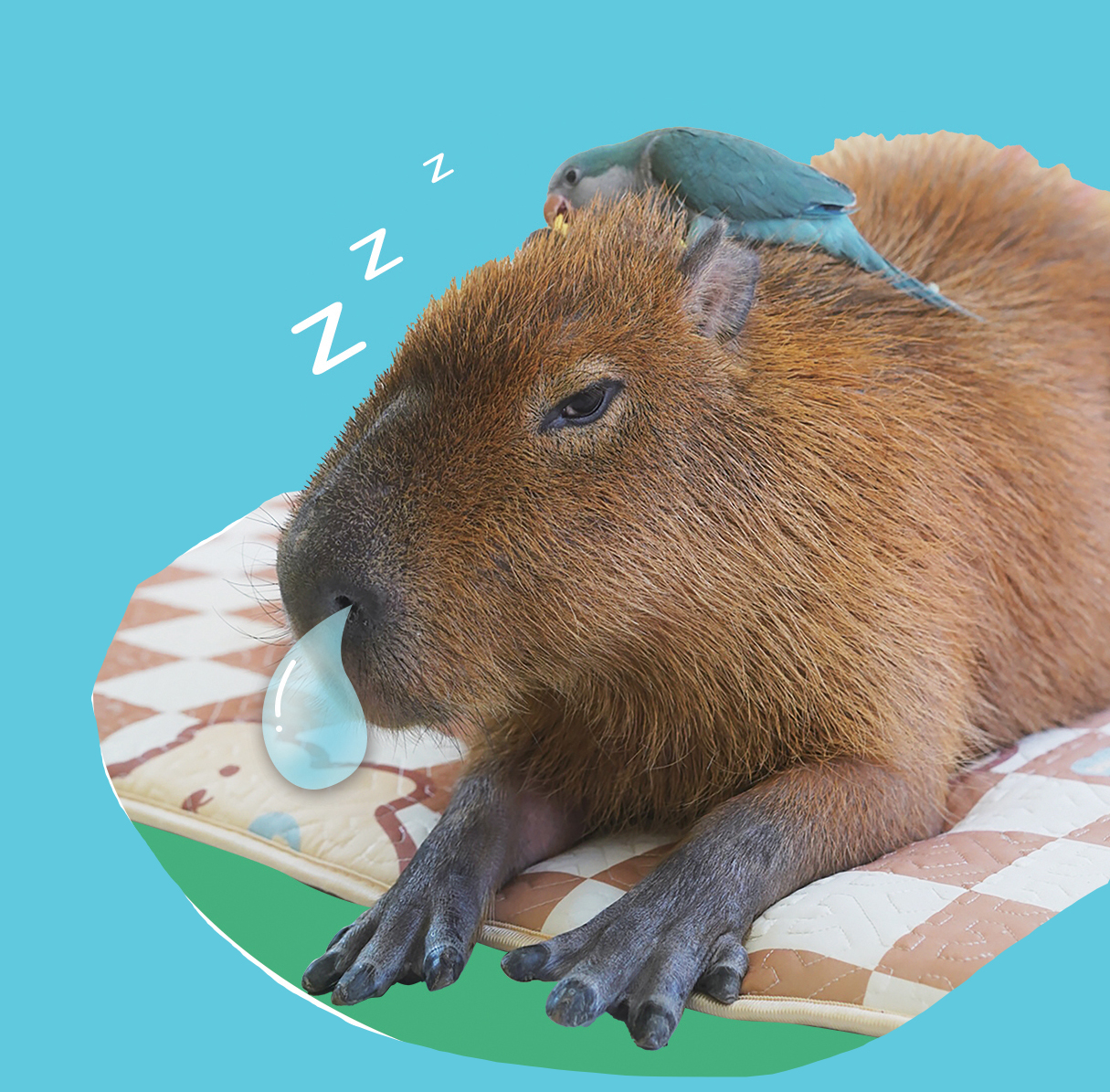A growing fascination with exotic pets is drawing young enthusiasts to pet cafes and social media, despite the challenges of raising unconventional animals.

Even on a regular weekday, Kitty Zoo, a pet cafe in Changzhou, Jiangsu, attracts a crowd of visitors, all eager to meet its star, a capybara named Jilizhazha.
Founded just two months ago by Tang Rong, 35, and Li Xiaohan, 32, the cafe quickly rose to the top of Meituan, a major online services platform in China, within days of its opening.
"Most of our customers are young people in their early 20s," Li said.
Tang, who has over a decade of experience in the pet industry, reflected on a time when keeping unconventional pets like lizards and snakes was a niche hobby. However, the surging popularity of alpacas on social media in recent years has led to greater acceptance of exotic pets. Even many cat cafes now feature exotic animals to attract more customers.
The term "exotic pets" refers to animals beyond traditional companions like cats and dogs, including insects, birds, mammals, amphibians, and reptiles. On the lifestyle-sharing platform Xiaohongshu, the tag "exotic pets" has amassed over 360 million views, showcasing pet owners caring for popular animals such as capybaras, raccoons, meerkats, and alpacas.
One such enthusiast, 23-year-old Jiaotou (pseudonym), began raising raccoons at home last April, inspired by their classic imagery on a popular childhood snack in China and characters like Rocket Raccoon from Marvel's Guardians of the Galaxy (2014).
READ MORE: Pet economy purrs ahead as cat, pooch cafes spread
Jiaotou's first attention-grabbing video was a vlog of him taking Guozi, one of his raccoons, for a stroll, which captured the interest of passersby. Today, Jiaotou boasts over 500,000 followers on Douyin, with his most engaging content centered on his raccoons.
While new animal stars gain popularity, classic favorites like alpacas continue to shine on social media.
Ma Lin, a 30-year-old pet vlogger on Douyin, often livestreams her interactions with her alpacas, particularly a standout named Luobodun.
"An alpaca's intelligence is similar to that of a 2- to 3-year-old child, but Luobodun is even smarter," Ma said. For example, alpacas are known for their spitting behavior, a quirky trait often seen as a humorous form of emotional expression. Ma once discovered that Luobodun could spit on command, turning this into a playful trick featured in her videos.

Behind the screen
While raising exotic pets brings unique experiences, owners advise caution before bringing these animals home.
For Jiaotou, the primary cost of raising raccoons comes from their destructive tendencies. "One of them knocked over my TV, costing me 2,000 yuan ($281)," he recalled with a laugh.
Raccoons, with their five flexible fingers, can create chaos if left unsupervised, leading owners to often keep them in cages when they are away from home. "I have to use complex locks since raccoons can open simple latches," Jiaotou added.
According to him, raccoons are naturally timid and can become aggressive when stressed or frightened, so they need socialization from a young age. Even experienced owners like himself find it takes two to three months for these animals to become comfortable with human interaction.
"It requires patience and dedication," Jiaotou explained, noting that their sharp teeth and claws can cause injuries during the training process. "Despite these efforts, it's still rare to get a docile raccoon because their genetics heavily influence their behavior."
Among the raccoons Jiaotou raises, only Guozi has a relatively gentle personality. "The well-behaved raccoons on social media only show one side of their nature," he said.
In addition to managing their innate wild instincts, pet owners must also create specific living environments and provide tailored daily care for these unique animals. Capybaras, for instance, need regular baths in designated pools, and their living spaces must be heated during winter, according to Tang.
She explained that a typical male capybara can weigh up to 50 kg and has a large appetite, producing a considerable amount of waste.
"Unless you have a large yard or ample space, keeping a capybara indoors isn't practical," she advised.
Capybaras also need socialization training to adapt to human environments. Although they may appear calm on social media, they are wild animals by nature and are not as emotionally stable as they seem — they actually have a strong instinct to flee at the slightest sense of danger.
Additionally, capybaras need to be raised in pairs or with other animals to ensure their psychological well-being. "Because these animals don't easily express distress, owners must be patient and attentive to their health to catch potential issues early," Tang explained.
Alpacas also demand substantial time and companionship. "This is why they're not suitable pets for people with full-time jobs," Ma said, adding that their droppings have a strong odor, and bathing them also requires significant effort. "Professional grooming can be costly, and doing it at home can take at least half a day," she said.
When her followers seek advice on caring for alpacas, Ma often emphasizes the importance of long-term commitment. She explained that while alpacas may not show immediate affection toward humans like cats and dogs, they develop strong loyalty once a bond is formed.
"Alpacas can live over 20 years, so if you can't commit to long-term companionship, it's best not to keep them," she said.
Huang Yuan, a PhD student at Huazhong Agricultural University and a senior veterinarian at a pet hospital chain in Wuhan, Hubei province, also advises those considering an exotic pet to think carefully before making a decision.
"Humans often impose their expectations on animals with a sense of superiority, yet these animals have no choice in becoming pets. This is inherently unfair," he said.
Huang recalled treating a capybara found wandering the streets, likely abandoned by its owner. "Many young people may be attracted by the appealing images of these animals on social media, but the reality of caring for them can differ significantly from their expectations," he said.

Beyond fluffy
Huang highlighted another important consideration for prospective exotic pet owners: the limited access to veterinarians and hospitals equipped to treat exotic animals. Although regular veterinary clinics are available, they often lack the specialized facilities tailored to the needs of these unique animals.
Huang has noticed a rise in exotic pet cases at the hospital where he works. While dogs and cats remain his primary patients, exotic pets now account for 30 to 40 percent of his clientele.
"The exotic pet industry has grown rapidly over the past two years, promoting veterinarians to adapt their practices," he explained, noting ongoing developments in treatment methods.
ALSO READ: Cakes to couture, pampered pets a growing breed
However, despite this growth, only about 20 out of the 300 to 400 pet hospitals in Wuhan are currently equipped to treat exotic animals professionally, according to Huang.
While breeding facilities for various exotic pets are now available in China, it is crucial to choose reputable sources to avoid risks such as illegal transactions, infectious diseases, and ecological threats.
For this reason, private owners of certain exotic animals, like capybaras, must obtain specific qualifications, including a government-issued quarantine compliance certificate.
So while Jilizhazha charms visitors, his fans must remember: behind every adorable exotic pet lies a commitment few are ready for.


